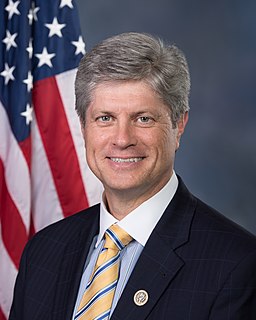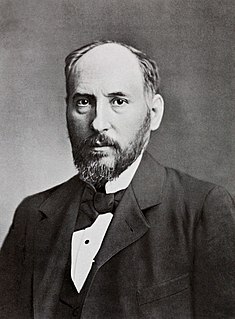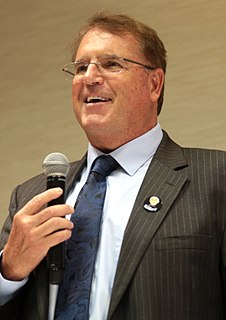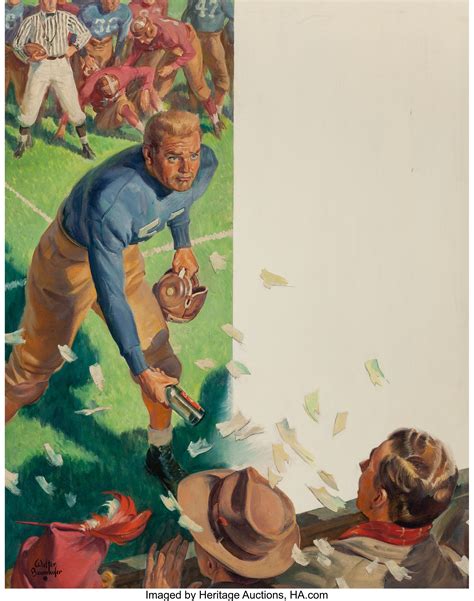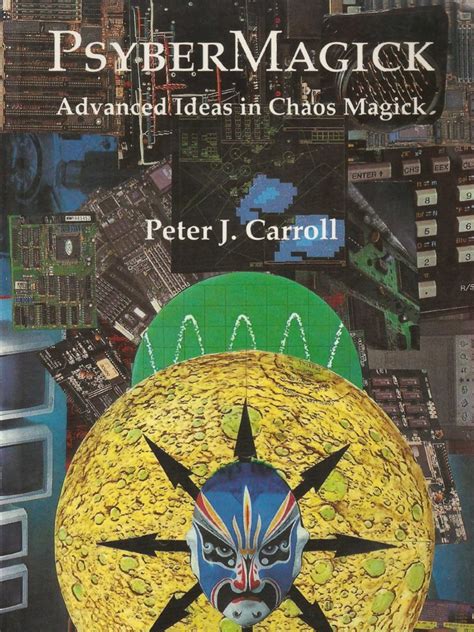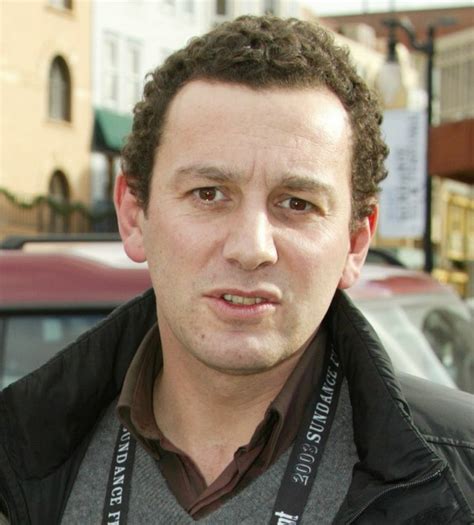Top 231 Aristocracy Quotes & Sayings - Page 4
Explore popular Aristocracy quotes.
Last updated on April 15, 2025.
If the individuals who compose the purest circles of aristocracy in Europe, the guarded blood of centuries, should pass in review,in such manner as that we could, at leisure, and critically inspect their behavior, we might find no gentleman, and no lady; for, although excellent specimens of courtesy and high-breeding would gratify us in the assemblage, in the particulars, we should detect offence. Because, elegance comes of no breeding, but of birth.
In any piece of rhetorical discourse, one rhetorical term overcomes another rhetorical term only by being nearer to the term which stands ultimate. There is some ground for calling a rhetorical education necessarily aristocratic education in that the rhetorician has to deal with an aristocracy of notions.
Governments, if they endure, always tend increasingly toward aristocratic forms. No government in history has been known to evade this pattern. And as the aristocracy develops, government tends more and more to act exclusively in the interests of the ruling class -- whether that class be hereditary royalty, oligarchs of financial empires, or entrenched bureaucracy.
You must drop all your democracy. You must not believe in ''the people.'' One class is no better than another. It must be a case of Wisdom, or Truth. Let the working classes be working classes. That is the truth. There must be an aristocracy of people who have wisdom, and there must be a Ruler: a Kaiser: no Presidents and democracies.
Christians believe themselves to be the aristocracy of heaven upon earth, they are admitted to the spiritual court, while millions of men in foreign lands have never been presented. They bow their knees and say they are 'miserable sinners,' and their hearts rankle with abominable pride. Poor infatuated fools! Their servility is real and their insolence is real but their king is a phantom and their palace is a dream.
Remember, democracy never lasts long. It soon wastes, exhausts, and murders itself. There never was a democracy yet that did not commit suicide. It is in vain to say that democracy is less vain, less proud, less selfish, less ambitious, or less avaricious than aristocracy or monarchy. It is not true, in fact, and nowhere appears in history. Those passions are the same in all men, under all forms of simple government, and when unchecked, produce the same effects of fraud, violence, and cruelty.
I would be the last to deny that the greatest scientific pioneers belonged to an aristocracy of the spirit and were exceptionally intelligent, something that we as modest investigators will never attain, no matter how much we exert ourselves. Nevertheless ... I continue to believe that there is always room for anyone with average intelligence ... to utilize his energy and ... any man could, if he were so inclined, be the sculptor of his own brain, and that even the least gifted may, like the poorest land that has been well-cultivated and fertilized, produce an abundant harvest.
There are still two forms besides democracy and oligarchy; one of them is universally recognized and included among the four principal forms of government, which are said to be (1) monarchy, (2) oligarchy, (3) democracy, and (4) the so-called aristocracy or government of the best. But there is also a fifth, which retains the generic name of polity or constitutional government.
No sovereign, no court, no personal loyalty, no aristocracy, no church, no clergy, no army, no diplomatic service, no country gentlemen, no palaces, no castles, nor manors, nor old country-houses, nor parsonages, nor thatched cottages nor ivied ruins no cathedrals, nor abbeys, nor little Norman churches no great Universities nor public schools -- no Oxford, nor Eton, nor Harrow no literature, no novels, no museums, no pictures, no political society, no sporting class -- no Epsom nor Ascot Some such list as that might be drawn up of the absent things in American life.
Just as a royal rule, if not a mere name, must exist by virtue of some great personal superiority in the king, so tyranny, which is the worst of governments, is necessarily the farthest removed from a well-constituted form; oligarchy is little better, for it is a long way from aristocracy, and democracy is the most tolerable of the three.
This rationale, which justified the mixed constitution of Great Britain, might have made some sense in 1776, but by 1787 most American thinkers had come to believe that all parts of their balanced governments represented in one way or another the sovereign people. They had left the Aristotelian idea of mixed estates - monarchy, aristocracy, and democracy - way behind. [John] Adams had not, and his stubbornness on this point caused him no end of trouble.
?A general State education is a mere contrivance for moulding people to be exactly like one another; and as the mould in which it casts them is that which pleases the dominant power in the government, whether this be a monarch, an aristocracy, or a majority of the existing generation; in proportion as it is efficient and successful, it establishes a despotism over the mind, leading by a natural tendency to one over the body.
As to the Income Tax, my opinion is that the needful revenue would be fairly and most fairly raised if paid by property, and by individuals in proportion to their property. A Property Tax should be an assessment upon all land and buildings, and canals and railroads, but not on property such as machinery, stock in trade, etc. The aristocracy have squeezed all they can out of the mass of the consumers, and now they lay their daring hands on those not wholly impoverished.
If a [democratic] society displays less brilliance than an aristocracy, there will also be less wretchedness; pleasures will be less outrageous and wellbeing will be shared by all; the sciences will be on a smaller scale but ignorance will be less common; opinions will be less vigorous and habits gentler; you will notice more vices and fewer crimes.
Capitalism improves the quality of life for the working class not just because it leads to improved wages but also because it produces new, better, and cheaper goods.... Indeed, with capitalism, the emphasis shifted to producing goods as cheaply as possible for the masses--the working class--whereas artisans had previously produced their goods and wares mostly for the aristocracy. Under capitalism every business wants to cater to the masses, for that is where the money is.
There is something to be said for government by a great aristocracy which has furnished leaders to the nation in peace and war for generations; even a democrat like myself must admit this. But there is absolutely nothing to be said for government by a plutocracy, for government by men very powerful in certain lines and gifted with the money touch, but with ideals which in their essence are merely those of so many glorified pawnbrokers.
Thus the brave and aspiring life of one man lights a flame in the minds of others of like faculties and impulse; and where there is equally vigorous effort, like distinction and success will almost surely follow. Thus the chain of example is carried down through time in an endless succession of links--admiration exciting imitation, and perpetuating the true aristocracy of genius.
A poet’s freedom lies precisely in the impossibility of worldly success. It is the freedom of one who knows he will never be anything but a failure in the world’s estimation, and may do as he pleases. The poet is a man on the sidelines of life, sidelined for life. He belongs to the aristocracy of the outcast, the lowest of the low, below the salt of the earth. A member of the most ancient regime in the world. One that cannot, it seems, be overthrown.
Ninety-nine per cent of traditional English literature concerns people who never have to worry about money at all. We always seem to be watching or reading about emotional crises among folk who live in a world of great fortune both in matters of luck and money; stories and fantasies about rock stars and film stars, sporting millionaires and models; jet-setting members of the aristocracy and international financiers.
The natural aristocracy I consider as the most precious gift of nature for the instruction, the trusts, and government of society. And indeed it would have been inconsistent in creation to have formed man for the social state, and not to have provided virtue and wisdom enough to manage the concerns of the society. May we not even say that that form of government is the best which provides the most - for a pure selection of these natural aristoi into the offices of government?
I distrust Great Men... I believe in aristocracy, though... Its members are to be found in all nations and classes, and all through the ages, and there is a secret understanding between them when they meet... They are sensitive for others as well as for themselves, they are considerate without being fussy, their pluck is not swankiness but the power to endure, and they can take a joke.
The culture of the United States has flooded the world. It's the inevitable result of a powerful culture, art. We've got an instinctive touch when it comes to the popular mind because we've had no aristocracy. It is a democratic country. And we know without knowing it, without bothering to understand it, how to reach ordinary people, sometimes with the most vulgar, worthless junk on the face of the earth, but we know how to do it [laughter].
Democracy entails a correlation between the public interest as expressed by a majority of the population and the governmental policies that affect them. The term encompasses various manifestations, including direct, participatory and representative democracy, but Governments must be responsive to people and not to special interests such as the military-industrial complex, financial bankers and transnational corporations. Democracy is inclusive and does not privilege an anthropological aristocracy.
Enforcing equality to compensate for the monstrous unfairness of nature destroys liberty.
But total liberty leads to various forms of "aristocracy" and decay.
Yet total equality leads to oppressive statism and decay.
However, equality of opportunity leads to a vibrantly chaotic and creative meritocracy.
In France those absurd perversions of the art of war which covered themselves under the name of chivalry were more omnipotent than in any other country of Europe. The strength of the armies of Philip and John of Valois was composed of a fiery and undisciplined aristocracy which imagined itself to be the most efficient military force in the world, but which was in reality little removed from an armed mob.
laughter, that distinctively human emotion, laughter which springs from trust in the other, from willingness to put oneself momentarily in the other's place, even at one's own expense, is the special emotional basis of democratic procedures, just as pride is the emotion of an aristocracy, shame of a crowd that rules, and fear of a police state.
I grew up in a bit of a vacuum. And as a kid, you see 'Monty Python's Flying Circus' and you're like, 'Oh, it's a cartoon.' There's mixed media. It's funny, and there's stop-motion. But as an adult, you figure it out, how the entire underpinnings of their comedy was poking fun at the rank and file of the British aristocracy and the monarchy.
Thus, experience has ever shown, that education, as well as religion, aristocracy, as well as democracy and monarchy, are, singly, totally inadequate to the business of restraining the passions of men, of preserving a steady government, and protecting the lives, liberties, and properties of the people . . . . Religion, superstition, oaths, education, laws, all give way before passions, interest, and power, which can be resisted only by passions, interest, and power.
By the aristocracy of finance must here be understood not merely the great loan promoters and speculators in public funds, in regard to whom it is immediately obvious that their interests coincide with the interests of the state power. All modern finance, the whole of the banking business, is interwoven in the closest fashion with public credit.
Aristocracy is an atmosphere; it is sometimes a healthy atmosphere; but it is very hard to say when it becomes an unhealthy atmosphere. You can prove that a man is not the son of a king, or that he is not the delegate of a definite number of people. But you cannot prove that a man is not a gentleman.
Those in authority within institutions and social structures attempt to justify their rule by linking it, as if it were a necessary consequence, with moral symbols, sacred emblems, or legal formulae which are widely believed and deeply internalized. These central conceptions may refer to a god or gods, the 'votes of the majority,' the 'will of the people,' the 'aristocracy of talents or wealth,' to the 'divine right of kings' or to the alleged extraordinary endowment of the person of the ruler himself.
When culture is created in boardrooms with a panel of six or seven strategists for the masses to follow, to me that is no different than an aristocracy. It's not created from the people in the middle of the streets, so to speak. It is created from a petri dish for the sake of making money, and it is undermining the longevity of the culture.
Our whole system of banks is a violation of every honest principle of banks. There is no honest bank but a bank of deposit. A bank that issues paper at interest is a pickpocket or a robber. But the delusion will have its course. ... An aristocracy is growing out of them that will be as fatal as the feudal barons if unchecked in time.
They that are discontented under monarchy, call it tyranny; and they that are displeased with aristocracy, call it oligarchy: so also, they which find themselves grieved under a democracy, call it anarchy, which signifies the want of government; and yet I think no man believes, that want of government, is any new kind of government.
Augustus gradually increased his powers, taking over those of the senate, the executives and the laws. The aristocracy received wealth and position in proportion to their willingness to accept slavery. The state had been transformed, and the old Roman character gone for ever. Equality among citizens was completely abandoned. All now waited on the imperial command.
The Senate was the equivalent of an aristocracy at the beginning. Senators were not even elected; they were appointed in the early days. Then that changed, and senators did become elected. But the Senate is designed to slow down out-of-control, madcap activity elsewhere in the legislative branch (i.e., in the House), and the 60-vote rule was part of that.
For activists who want to preserve constitutional democracy, who don't believe in hereditary aristocracy, who believe that teachers ought to be able to deduct the 250 bucks of school supplies that they bring - they might spend their own money for in a classroom, then you still have time to fight a horrible piece of legislation.
Books are the treasured wealth of the world and the fit inheritance of generations and nations. Books, the oldest and the best, stand naturally and rightfully on the shelves of every cottage. They have no cause of their own to plead, but while they enlighten and sustain the reader his common sense will not refuse them. Their authors are a natural and irresistible aristocracy in every society, and, more than kings or emperors, exert an influence on mankind.
24.9 percent of American children live in poverty, while the proportions in Germany, France and Italy are 8.6, 7.4 and 10.5 percent. And once born on the wrong side of the tracks, Americans are more likely to stay there than their counterparts in Europe. Those born to better-off families are more likely to stay better off. America is developing an aristocracy of the rich and a serfdom of the poor - the inevitable result of a twenty-year erosion of its social contract.
Nothing is quite so wretchedly corrupt as an aristocracy which has lost its power but kept its wealth and which still has endless leisure to devote to nothing but banal enjoyments. All its great thoughts and passionate energy are things of the past, and nothing but a host of petty, gnawing vices now cling to it like worms to a corpse.


